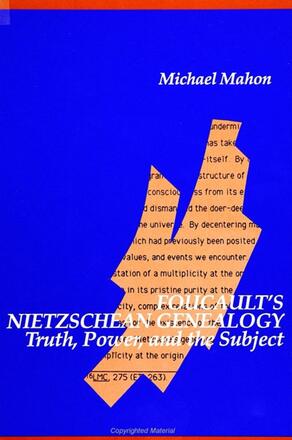
Foucault's Nietzschean Genealogy
Truth, Power, and the Subject
Alternative formats available from:
Description
This is the first full-length study of the impact of Friedrich Nietzsche's writings on the thought of French philosopher Michel Foucault. Focusing on the notion of genealogy in the thought of both Nietzsche and Foucault, the author explores the three genealogical axes—truth, power, and the subject—as they gradually emerge in Foucault's writings. This complex of axes into which Foucault was drawn, especially as a result of his early history of madness, called forth his explicit adoption of a Nietzschean approach to his future work.
By interpreting Foucault's Histoire de la folie in the light of Nietzsche's genealogy of tragedy, Mahon shows how the moral problematization of madness in history provides the historical conditions from which the three axes emerge. After tracing the gradual emergence of the three axes through Foucault's writings of the remainder of the 1960s, especially Les Mots et les choses, Mahon turns to Foucault's explicit methodological statements and his notion of genealogy and offers a reading of Foucault's L'archeologie du savoir, arguing that there is no chasm between Foucault's archaeological writings and his genealogies.
The work concludes with an analysis of Foucault's final writings on the genealogy of modern subjectivity and an examination of how truth, power, and the subject operate for the modern psychoanalytic subject of desire.
Reviews
"There has long been a need to overcome the view that Foucault is totally unique, a philosophical eccentricity. In exploring him as a Nietzschean, Mahon meets this need in a very close reading of Foucault and one which is extremely well written.
"I regard it as very important for the world of scholarship about Foucault, but also for Nietzsche. Mahon shows that Nietzsche himself can lead to an important style of concrete critique.
"While such careful—and needed—textual analysis could be dull, the fact that the subject matter is Nietzsche and Foucault makes that careful reading fascinating in its own right. In addition to its scholarly contribution, the material is so fascinating and the text so well written that the book should appeal to a fairly general academic audience. " — James Bernauer, Boston College